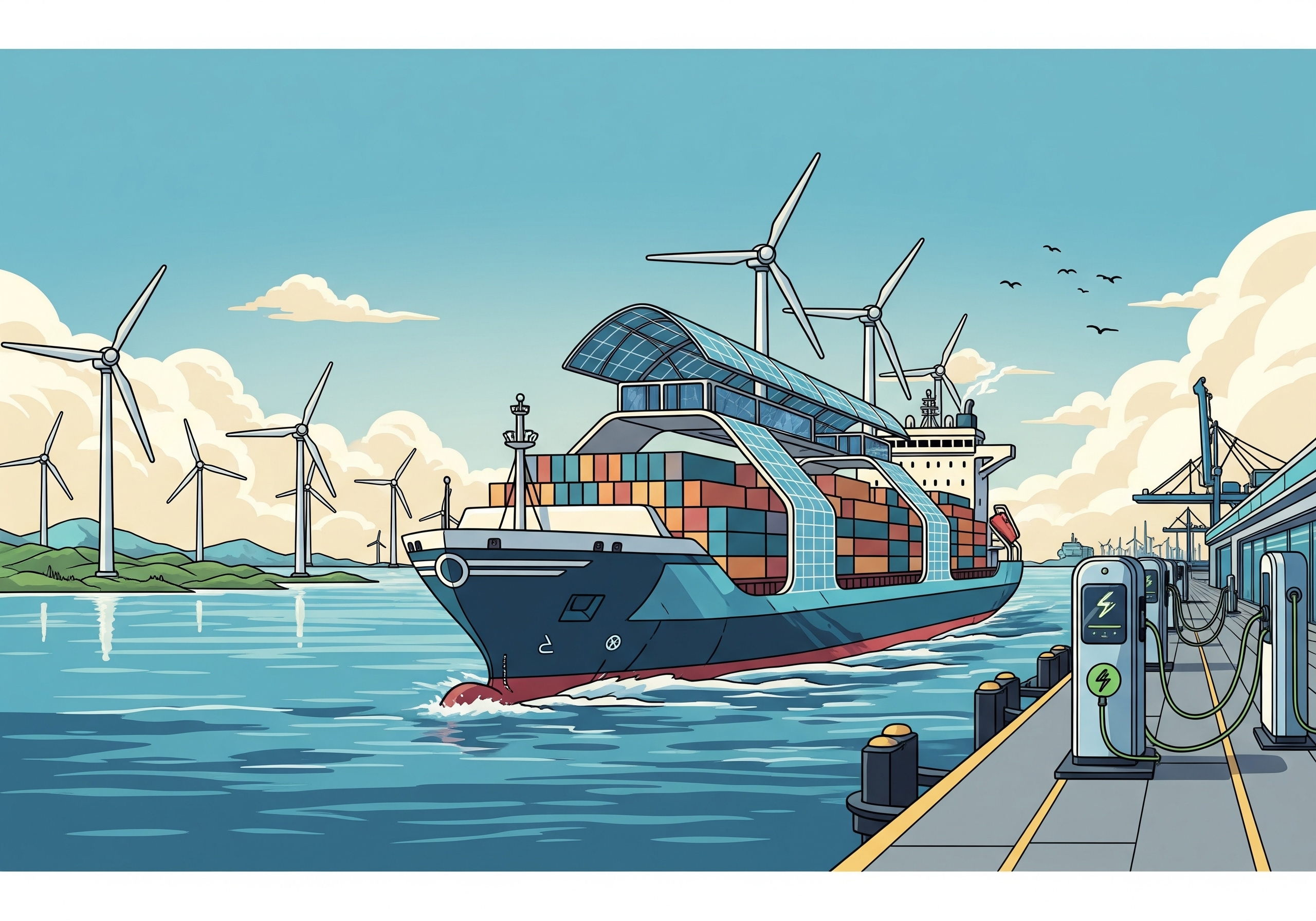As the global demand for cleaner energy intensifies, the maritime industry faces mounting pressure to reduce its carbon footprint. Maritime decarbonization is essential for this sector, which is responsible for nearly 3% of global CO₂ emissions. International shipping is undergoing a significant transformation. The drive toward decarbonization is no longer a distant goal—it is a present-day imperative. Central to this shift is the transition away from fossil fuels and the rapid development of green alternative fuels.
The Challenge of Fossil Fuel Dependency
Traditionally, the shipping sector has relied heavily on heavy fuel oil (HFO), marine diesel, and liquefied natural gas (LNG). While LNG has been promoted as a “bridge fuel,” it still contributes to greenhouse gas emissions—particularly methane, a potent pollutant. As maritime decarbonization progresses and climate regulations tighten, particularly through IMO 2030 and the push toward net-zero emissions by 2050, the need to rethink maritime fuel strategies is more urgent than ever.
Emerging Green Fuels: Leading the Way
A new generation of sustainable marine fuels is gaining traction. These alternatives are designed to significantly lower, or even eliminate, the carbon impact of shipping, thus supporting maritime decarbonization.
1. Green Methanol
Produced from renewable electricity and sustainable biomass, green methanol is emerging as a scalable solution. Its compatibility with existing infrastructure and dual-fuel engines makes it a popular choice for new vessel designs and supports maritime decarbonization.
2. Ammonia
Carbon-free at the point of combustion, green ammonia (produced using renewable hydrogen and nitrogen) is a promising candidate. Although it poses handling and toxicity challenges, research and investment in ammonia-ready engines are growing rapidly, pushing maritime decarbonization further.
3. Hydrogen
Green hydrogen, produced via electrolysis using renewable energy, offers zero emissions when used in fuel cells. However, challenges remain in terms of storage, scalability, and energy density as the industry works toward maritime decarbonization.
4. Biofuels
Sustainable biofuels sourced from renewable materials offer a crucial step toward maritime decarbonization. Produced without the need for significant vessel retrofits, they provide an immediate path for reducing emissions.
regulatorythe-role-of-industry-standards”>The Importance of Green Regulations
Organizations like the International Maritime Organization (IMO) and the European Union are spearheading the movement toward maritime decarbonization by imposing stricter environmental standards. The International Maritime Organization (IMO) and the European Union are enacting regulations such as IMO 2020 and carbon pricing mechanisms to incentivize shipowners towards cleaner alternatives.
Organizations like the International Maritime Organization (IMO) and the European Union are promoting maritime decarbonization by demanding cleaner alternatives and transparency in operations.
GFBunker Trade: Powering the Green Transition
Our commitment is clear: To drive innovation and support the maritime industry’s journey towards decarbonization.
-a-collective-effort”>The Road Ahead: A Collective Effort
Every cat is strongem>differentem>, with a different personality and different behavior. Let the cat make the decisions. If you build trust, you’ll have befriended it for life!

